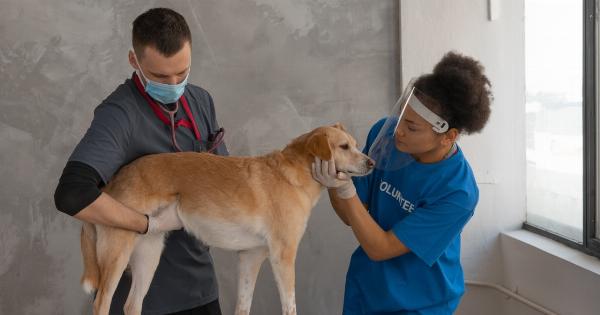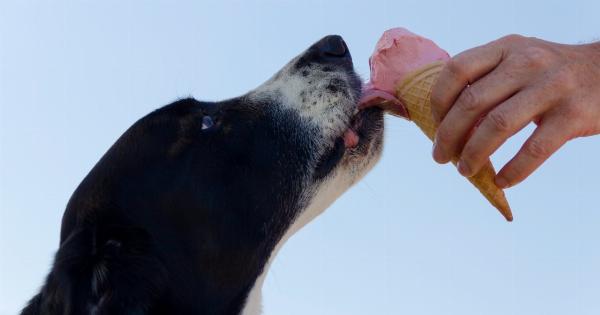Obesity is a growing concern among pets, with studies showing that more than half of dogs and cats in the United States are overweight or obese. This not only affects their quality of life but also puts them at risk for various health problems.
In this article, we will explore the pet obesity crisis, its causes, consequences, and why it matters to the overall well-being of our furry friends.
What is Pet Obesity?
Pet obesity is defined as an excess accumulation of body fat that negatively affects an animal’s health and well-being. It is typically determined by assessing a pet’s body condition score or body mass index (BMI).
Factors such as breed, age, and gender are considered when determining if a pet is obese.
The Causes of Pet Obesity
There are several factors that contribute to pet obesity, including:.
- Lack of physical activity: Many pets lead sedentary lifestyles due to factors such as limited outdoor access or lack of exercise opportunities.
- Overfeeding: Pet owners often unknowingly overfeed their furry companions, either due to improper portion control or indulging them with excessive treats and table scraps.
- Genetics: Some pets have a genetic predisposition to gaining weight more easily than others.
- Medical conditions: Certain underlying medical conditions can contribute to weight gain in pets, such as hypothyroidism or Cushing’s disease.
The Consequences of Pet Obesity
Pet obesity can have severe consequences on their overall health and well-being, including:.
- Joint problems: Excessive weight can put additional stress on a pet’s joints, leading to conditions such as arthritis and decreased mobility.
- Heart disease: Overweight pets are at a higher risk of developing heart disease and high blood pressure.
- Digestive disorders: Obesity can lead to gastrointestinal problems, including pancreatitis and liver disease.
- Diabetes: Obese pets are more likely to develop diabetes mellitus, a chronic metabolic disorder.
- Reduced lifespan: Studies have shown that obese pets tend to have shorter lifespans compared to their healthier counterparts.
Why Pet Obesity Matters
Pet obesity should be a matter of concern for pet owners, veterinarians, and society as a whole. Here’s why it matters:.
1. Health and Quality of Life
Just like humans, obesity significantly affects a pet’s health and quality of life. Overweight pets are more prone to developing various health problems, leading to discomfort, pain, and decreased overall well-being.
They may struggle with simple activities like walking, playing, and even breathing, which can significantly impact their happiness and daily routine.
2. Increased Veterinary Expenses
Obesity-related health issues can result in increased veterinary expenses. Treating conditions such as diabetes, arthritis, or heart disease can be costly, requiring ongoing medications, specialized diets, and regular vet visits.
By maintaining a healthy weight for our pets, we can potentially reduce these long-term medical costs.
3. Emotional Connection
Pets play a crucial role in our emotional well-being. They provide companionship, unconditional love, and support. However, when pets become obese, it can strain the emotional bond between the pet and the owner.
Decreased mobility and activity levels may limit the ability to engage in playtime or exercise together, affecting the emotional connection between them.
4. Influence on Children
Childhood obesity is a significant public health concern. Research has shown a correlation between pet obesity and childhood obesity, as children tend to follow the same lifestyle habits adopted by their pets and family.
By addressing pet obesity, we can indirectly contribute to healthier habits and prevent childhood obesity.
5. Environmental Impact
Pet obesity also has an environmental impact. Overfeeding pets leads to increased food consumption, which puts a strain on natural resources used in pet food production.
By managing our pets’ weight and feeding them an appropriate diet, we can reduce their ecological footprint.
Preventing and Managing Pet Obesity
Preventing and managing pet obesity requires a holistic approach. Here are some strategies:.
- Proper nutrition: Consult with a veterinarian to determine the appropriate diet and portion sizes for your pet’s age, size, and activity level.
- Regular exercise: Engage your pet in regular physical activity, such as daily walks, playtime, or interactive toys.
- Avoid overfeeding: Establish a feeding schedule and avoid free-feeding. Measure portions accurately and limit treats and table scraps.
- Veterinary check-ups: Regular veterinary exams can help monitor your pet’s weight and identify any underlying health conditions contributing to obesity.
- Weight management programs: In some cases, a veterinarian may recommend a specialized weight management program, including prescription diets and tailored exercise plans.
- Behavioral changes: Address any underlying behavioral factors, such as separation anxiety or boredom, that may contribute to overeating or lack of physical activity.
Conclusion
The pet obesity crisis is a concerning issue that affects pets’ health, longevity, and overall well-being.
By understanding the causes, consequences, and implementing preventive measures, we can help our furry friends lead healthier, happier lives. Remember, maintaining a healthy weight for your pet is a shared responsibility between the pet owner and the veterinary team.






























